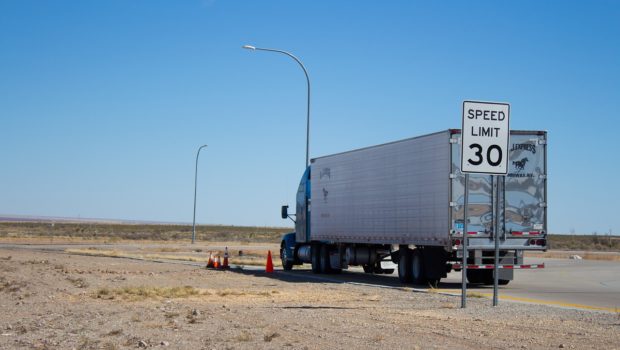What safety regulations govern truck drivers in Texas?
The United States government and the individual states, including Texas, have enacted laws to protect the general and motoring public against negligent, ignorant, and deliberately indifferent truck drivers.
Many laws have been enacted in Texas to regulate truck drivers. A whole section of the Texas Code is dedicated to truck vehicle driving. If truck drivers don’t adhere to these trucking regulations they not only put themselves at risk but also attract a charge in court.
Truck drivers are governed more and more by regulations, including state regulations and local decrees. In the event a truck driver is found in breach of the safety regulations, West Texas truck accident lawyer has a thorough knowledge of these regulations and industry best practices to represent affected victims, truck drivers, or a trucking company respectively.
Texas Commercial Vehicle Enforcement Service (CVES)
The regulations are drafted by the Commercial Vehicle Enforcement Service in Texas. This is an entity tasked with reducing commercial motor vehicle accidents, including for trucks. They protect Texas highways from accidents by ensuring all truck drivers comply with Texas state laws, including checking the weight of commercial vehicles.
Responsibility of CVES In Regulating Truck Drivers
The basic responsibility of CVES in regulating truck drivers is weighing and the checking their trucks operating over the public highways of Texas so that compliance is met of the statutory provisions of law regulating weight, truck carrier safety, registration, transportation of persons, harmful material and other cargo.
CVES enforce regulations to govern truck drivers in collaboration with the Highway Patrol Service to carry Traffic and Criminal Law Enforcement also on rural highways.
CVE Safety Regulations That Govern Truck Drivers in Texas
The following are some of the safety regulations drafted by CVE to govern truck drivers in Texas:
- Controlled Substance and Alcohol Use and Testing
Truck drivers are required to undergo controlled substance and alcohol testing. This rule is also applicable to those drivers already covered by the rule in interstate and intrastate truck driving operations.
There are no exemptions of other parts of federal safety regulations when it comes to CDL and drug/alcohol testing regulations by CVES.
Exemptions only apply to active-duty military personnel.
A trucking company is not to allow a driver to perform a safety-sensitive operation until he or she has undergone a test for alcohol and a controlled substance. In the event an accident has occurred, the company is required to test the surviving driver as soon as possible for alcohol and controlled substance abuse.
This is especially so if an accident that involves injury to any person who, as a result of the injury, has received medical treatment away from the scene of the accident. Also, if one or more vehicles have incurred damages, requiring a vehicle to be transported away from the scene by a tow truck.
- Medical Certification Requirement
All truck drivers are required to complete a self-certification affidavit (CDL-7) when applying for or renewing a Texas commercial driver’s license. A truck driver may be required to present a copy of the USDOT medical examiner certificate if he or she holds one. A driver with a medical variance copy is required to present it as well.
When filling out a self-certification affidavit, truck drivers are required to indicate the kind of commerce they run.
A truck driver who fails to keep a current DOT medical examiners certificate or variance if applicable on file with the Department of Public Safety (DPS) risks the downgrade of his or her commercial driver’s license. Every time truck drivers are issued with a new medical examiners certificate they are required to send it and the CDL-7, to the DPS before 15 days are over from the date of issuance of the DOT medical certificate.
- Safety Fitness Standard
A truck driver may receive a safety rating based on the type of investigation, when a Texas State Trooper carries an on-site review of the truck’s compliance with the Federal Motor Carrier Safety Regulations (FMCSRs) and the Hazardous Materials Regulations (HMR).
The Safety Investigator checks records and assesses roadside vehicle inspection data and accidents to see if a truck meets the requirements of the Safety Fitness Standard (SFS). One of the following ratings will be awarded based on the investigation done:
- Satisfactory: a truck vehicle has put in place adequate safety management controls and all are functioning to meet SFS requirements
- Conditional: the vehicle doesn’t have all safety management controls in place that ensure compliance with safety fitness standard, which could result in road accident occurrences
- Unsatisfactory: The safety management controls in place are minimal
- Unrated Carrier: a truck vehicle has not been assigned a safety rating by the FMCSA
- New Entrant Background Information
New entrant interstate truck vehicles are required by the FMCSA to complete an application package that consists of a Motor Carrier Identification Report (MCS-150) and Safety Certification Application for USDOT Number. Truck companies are required to complete this application online at the USDOT registration portal.
The carrier will then be subject to an 18-month safety monitoring period. The safety audit of the truck will be evaluated during this period for roadside crashes and inspection information. A carrier should demonstrate during this period that it has the necessary systems in place to ensure basic safety management controls.
Failure to comply with the basic safety management controls will lead to the trucking company having its vehicle entrant registration revoked.
- Financial Responsibility
Trucking companies are required to have insurance policies or surety of bonds that is enough to satisfy the minimum public liability requirements for bodily injury, property damage, and environmental restoration. When loss or destruction is arising from the discharge of toxic and other environmentally harmful materials or liquids, the rule of environmental restoration liability applies.
Sources
Cover Credits : NeedPix
















